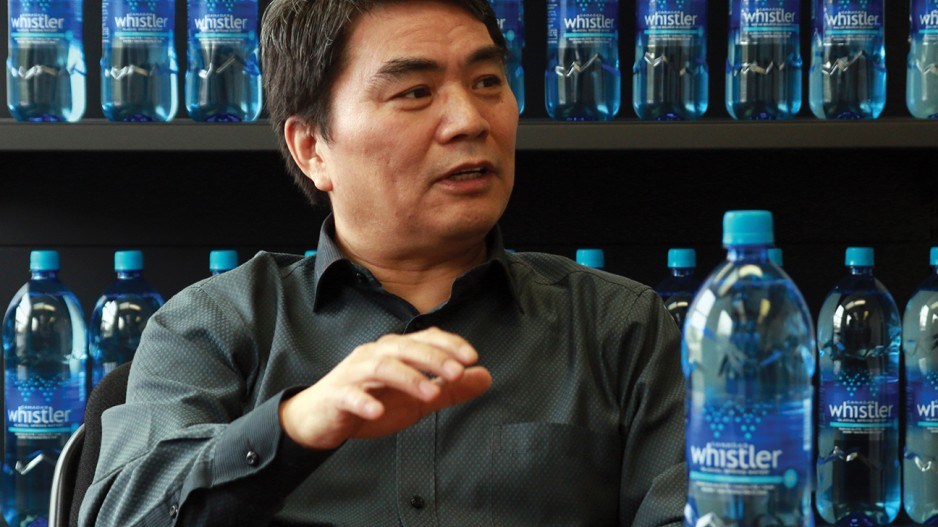Just two years after closing its Metro Vancouver production facility – and one year after being sold to new ownership –Burnaby-based Whistler Water Inc. is on the comeback trail.
A quick tour of the company’s Burnaby bottling plant shows Whistler Water’s production is back in full swing, with a staff of 40 workers and the constantly moving machinery churning out 43,000 bottles of water – 25,000 of the 350-millilitre variety and 18,000 of the 1.5-litre products – every hour.
The renewed energy, company representatives say, comes from a new – and more global – business perspective stemming from Whistler Water’s new overseas investors.
President Herbert Q. He said that when Whistler Water reached an agreement in 2016 to receive direct investment from Beijing-based Zhen Partners Fund, the company also gained insights into a two-pronged business strategy of expanding sales not only in its home Canadian market, but also in global markets.
The driving force behind this strategy, He said, is Whistler’s glacial spring water, which comes from a single source in the unpopulated Coast Mountains north of Vancouver, and which investors saw as a rare product that should be in high demand in the global water market.
A further validation that Whistler Water had a unique product came this June, when Belgium-based International Taste and Quality Institute gave the Canadian producer’s product a three-star rating, the institute’s highest designation.
“You would not see water this high in quality in most other places in the world,” He said. Referring to the success of Fiji Water on the global market, he added, “If Fiji can be a brand, why can’t Canada be one, as well? We have better water. I believe we are in a unique position to bring the best water in Canada to the global market.”
Whistler Water has been in operation since 1991. It was owned by the McLaughlin family, which recently sold Grouse Mountain Resorts to a firm with Chinese ties. But Whistler Water’s COO, Bruce Gemmell, noted that Whistler remains a Canadian company, with one of the key focus markets outside of Canada not being in Asia, but rather the western United States.
“People forget that the United States also has a demand for great drinking water – especially in places like California.”
Gemmell added that the American market also presents fewer logistic complications for a Canadian company.
“Los Angeles is half the distance from Vancouver as the distance from here to Toronto, not to mention the distance to Asia being even farther.”
Gemmell said Whistler Water is working on getting the necessary permits to reach American consumers and is planning a trade show appearance in California this year.
In addition, the company – which uses only plastic bottles – is developing a glass-bottle production line that’s more in line with the premium brand image it’s hoping to build with Whistler Water’s new consumers.
“Our mission is twofold,” Gemmell said. “For the Canadian consumer, there’s really no reason to pay for water that comes from elsewhere … and when customers do enjoy our product as an export product in their international markets, they will have confidence knowing that it genuinely is from Canada – unlike some other bottlers that use the same brand in many different markets, but use locally sourced water.”
As for the Asia portion of Whistler Water’s new strategy, Zhen Partners has agreed to promote, market and sell the product in the Chinese market, and the company believes the demand will be high given recent reports that up to 80% of China’s groundwater might be at serious risk of becoming polluted.
But China isn’t the only country with that problem. Whistler Water is also keen to enter the water market in India.
He said he hopes that a free trade agreement can be reached to put Canadian products on a level competitive footing with other western producers’ items in China and India.
“In a market like China, we are currently at a disadvantage when compared with the likes of New Zealand, because they have an FTA [free trade agreement] with China.”




